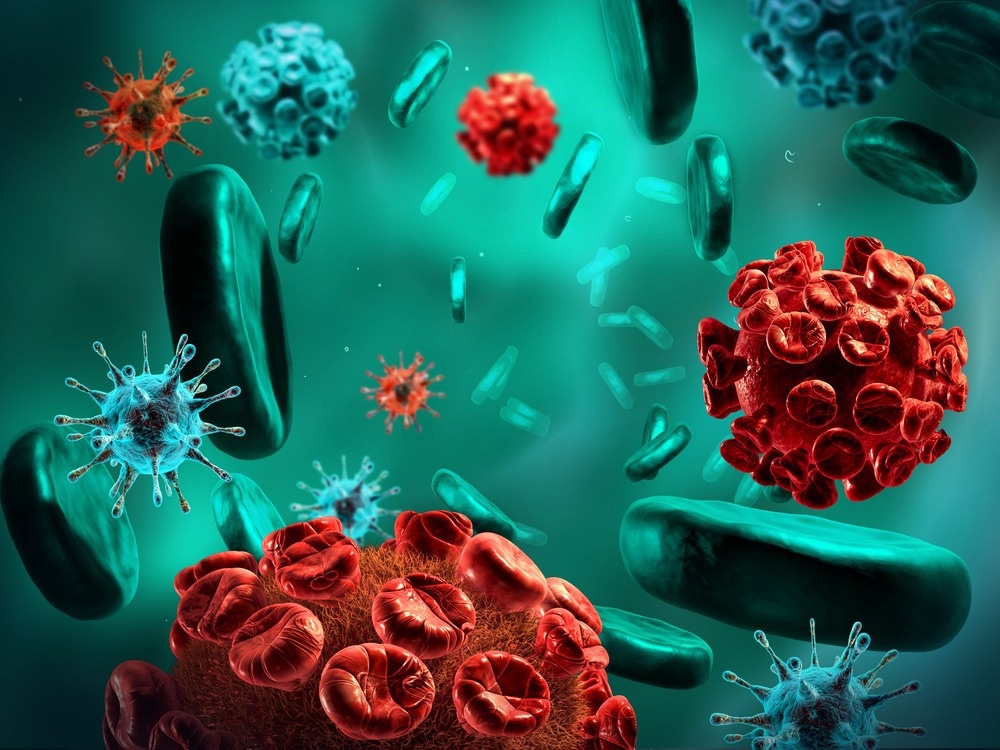Infection with the severe acute respiratory syndrome coronavirus 2 (SARS-CoV-2), the causal agent of the coronavirus disease 2019 (COVID-19), has claimed more than 6.5 million lives worldwide. COVID-19 severity can range from completely asymptomatic to organ failure, sepsis, and death.
Many individuals who have recovered from COVID-19 have reported the persistence of various symptoms. These symptoms comprise post-acute sequelae that are collectively referred to as ‘long COVID’. Despite over one-third of people with COVID-19 reporting persistent symptoms, the pathogenesis of this condition remains unclear.
 Study: The Incidence of Immune Mediated Inflammatory Diseases Following COVID-19: a Matched Cohort Study in UK Primary Care. Image Credit: Ralwell / Shutterstock.com
Study: The Incidence of Immune Mediated Inflammatory Diseases Following COVID-19: a Matched Cohort Study in UK Primary Care. Image Credit: Ralwell / Shutterstock.com

 *Important notice: medRxiv publishes preliminary scientific reports that are not peer-reviewed and, therefore, should not be regarded as conclusive, guide clinical practice/health-related behavior, or treated as established information.
*Important notice: medRxiv publishes preliminary scientific reports that are not peer-reviewed and, therefore, should not be regarded as conclusive, guide clinical practice/health-related behavior, or treated as established information.
In a recent study posted to the medRxiv* preprint server, researchers explore the potential association between SARS-CoV-2 infection and immune-mediated inflammatory diseases (IMIDs).
Background
It has been theorized that SARS-CoV-2 infection causes an inappropriate immune response that is responsible for the symptoms of long COVID. A significant and persistent rise in autoantibodies in COVID-19 patients compared to uninfected controls has supported this theory. Case reports of patients experiencing dysfunctional immune manifestations have also been described in systematic reviews.
In one review, researchers report thyroid dysfunction in up to 20% of patients. This is linked to B- and T-cell autoimmunity, which could be driven by the homology between human and SARS-CoV-2 proteins, a phenomenon called molecular mimicry.
The mechanisms responsible for IMIDs could include molecular mimicry and system dysregulation during COVID-19. Alternatively, tissue damage and the release of autoantigens could also contribute to the pathogenesis of this condition.
Current evidence supporting these hypotheses is based on small cohorts and case reports, both of which are not strong study designs for causal inference. Additionally, most data have been drawn from patients with moderate or severe disease, thus underrepresenting asymptomatic or mild cases, mainly associated with long COVID.
About the study
To address the aforementioned limitations, a retrospective matched cohort study was conducted using data from a major primary care database. The exposed cohort comprised 458,147 adults aged 18 years and older with confirmed SARS-CoV-2 infection and no prior diagnosis of IMIDs.
These patients were matched with 1,818,929 adults in the unexposed cohort based on age, sex, and general practice. Individuals in the unexposed cohort neither had a prior diagnosis of IMIDs nor confirmed or suspected SARS-CoV-2 infection.
A measure of the incidence of a composite of eleven IMIDs was the primary outcome variable. IMIDs constituting the composite were autoimmune thyroiditis, coeliac disease, inflammatory bowel disease (IBD), myasthenia gravis, pernicious anemia, psoriasis, rheumatoid arthritis (RA), Sjogren’s syndrome, systemic lupus erythematosus (SLE), type 1 diabetes mellitus (T1DM), and vitiligo.
The incidence of each of these IMIDs separately was the secondary outcome. Adjusted hazard ratios (aHR) for primary and secondary outcomes were estimated using Cox proportional hazards models for both the exposed and unexposed cohorts.
Key findings
Compared to the unexposed cohort, the exposed cohort was associated with a 22% relative increase in the incidence of the considered IMIDs during the same period. More specifically, the association between SARS-CoV-2 infection and T1DM, inflammatory bowel disease, and psoriasis was particularly strong.
Individuals in the exposed cohort were 56%, 52%, and 23% more likely to develop T1DM, IBD, and psoriasis, respectively, as compared to the unexposed cohort. Notably, 40% of all new diagnoses across both cohorts were for IBD and psoriasis.
Age and sex were major risk factors associated with the incidence of IMIDs. The likelihood of females being diagnosed with an IMID was 30% higher than males. Further, individuals aged 40-49 years and 50-59 years were less likely to be diagnosed with an IMID as compared to individuals aged 18-29 years.
Strengths and limitations
The large sample size of over two million provided sufficient statistical power to infer differences in the incidence of IMIDs across the two groups. Furthermore, important demographic and clinical risk factors were controlled. The study findings could also be generalized, as nationwide data were used.
Limitations of the study include missing data for ethnicity, body mass index (BMI), smoking status, and socioeconomic factors. Since community testing was not common during the first wave of the pandemic, there could be some misclassification across the two cohorts. Additionally, it is possible that only a fraction of IMID cases were detected during the short follow-up study period.
Conclusions
It has been widely documented that SARS-CoV-2 infection is associated with many IMIDs, such as psoriasis, IBD, and T1DM, thus suggesting that long COVID might be partly related to elevated autoimmunity. In the future, more research is needed on other diverse populations to confirm the current study findings.

 *Important notice: medRxiv publishes preliminary scientific reports that are not peer-reviewed and, therefore, should not be regarded as conclusive, guide clinical practice/health-related behavior, or treated as established information.
*Important notice: medRxiv publishes preliminary scientific reports that are not peer-reviewed and, therefore, should not be regarded as conclusive, guide clinical practice/health-related behavior, or treated as established information.